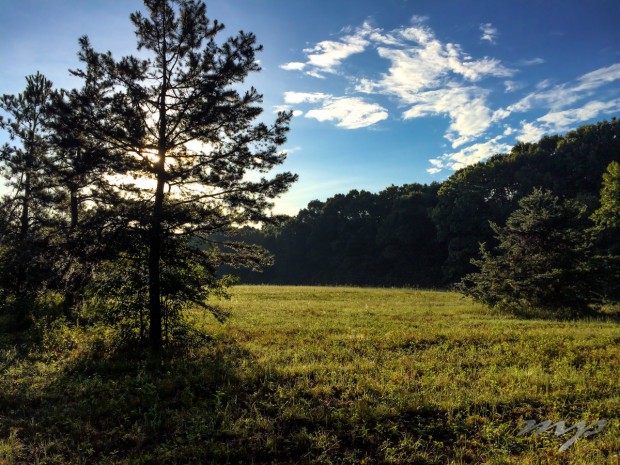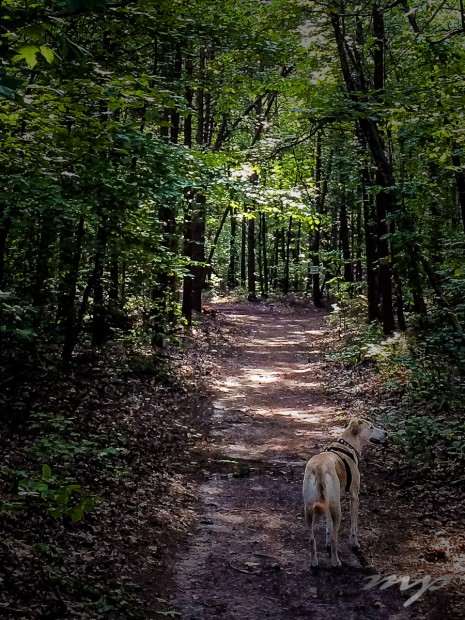
So what do you do when you return to daily life after a major escape — an experience away at any great destination or activity?
Most people slip back into the daily routine they lived before the trip — work, family and any other obligations. I’m doing that to a point but I’m also confronting circumstances which are yielding opportunities for determining the future.
What if you were given a mostly clean slate, a start over, a chance to redefine how and where you want to live the rest of your life — within financial/resource limits of course? Considering all the uncertainty this involves what would your choices be? How scary would it be to start a new life, in a new place, with perhaps a new lifestyle in the latter stages of your life?

From my experience aging people tend to hold-up in the “forts” they spend their lives building and paying for — their home, their neighborhood, their part of the country. Instead of expanding their reach, experiences and outlook during their later years, they op for a the safer route and retract/retreat, limiting the unknowns and the liabilities as much as possible.
If asked prior to retirement how they want live when retired, most people will recite two versions — one if money was no object and the other based upon what they see as reasonable or practical. What is shocking is how far apart these two visions most often are.
Why is this relevant to this post and myself? Bonnie and I find ourselves in the position of being out of work only a few years short of full retirement benefits — 66 years old in the United States. We didn’t plan at this point in our lives for things to be this way but life happens and we’ll roll with it — it could be a lot worst.
So, while we’re looking for jobs to bridge a few years we’re also examining and asking ourselves questions about what we want the rest of our lives to look like and where we want to spend those years.

It strikes me the safest, perhaps most responsible way of spending our retirement may not be the best for the most fulfilled life — where does the line fall between merely existing and truly living?
In any case it often orbits around money, which while certainly a significant factor, should not be the final factor in determining generally how/where we spend the rest of our lives. We are the final factor! If there’s something we really want to do or somewhere we really want to live then we need to figure out a way to do it, or something similar and as fulfilling, within our own limits.

Exactly what does this looks like? Well, it’s still a work in progress and perhaps all of this is only an exercise, a rant against getting older, and the safe options will win out. I’m not certain of any outcome at this point but it’s where my head has been.
Photos: iPhone photos from the daily routine of walking with Maggie in the woods. I finally upgraded my iPhone4 for a newer iPhone5s — just before Apple releases the next iPhone model.
This is a wonderfully thoughtful and thought provoking post. I know that I couldn’t even consider retirement until I had at least a sketchy vision of what I would do with my retirement. I needed a passion to fill my retirement years. I very much look forward to seeing the comments to come.
I love the photos, by the way.
Well, Anita, for sure you’ve found your passion. :)
Anita, thanks for your kind comment and I agree with Paul it seems you’ve found your passion as well as a wonderful community for sharing your lovely creativity. I envy that!
Earl. What a great post. You’ve echoed many of the same thoughts that I’m having right now. Although I’m 52, believe me, I’m thinking about retirement – trying to come up with a plan of what I want to do. That, I think, is essential … at least a general plan.
I don’t want to be stuck in the house, imprisoned if you will. I want to be out doing something. I’ve thought about moving to Mexico, somewhere where there aren’t too many English speakers, but just a few. Then, to be honest with myself, I don’t know if I want to exactly go that far afield.
One of the people that I met in Mexico, a Canadian I believe said: Florida is where old people go to die, San Miguel is where they come to live. :) Obviously, she was a fan and had been living there for a number of years.
Safety, is an illusion, as they say. We’re never truly safe. Why not get out and explore the world? This is great food for thought, Earl.
Paul, thanks for your thoughts and comment. Bonnie and I had discussed retirement of course and had our plan(s) but life has a way to sweep plans aside when it wants to.
Fortunately we were prepared so the changes have not resulted in a hard landing. With the last couple of blog post I’ve decided to share some of the thought processes and events…it’s somehow comforting they are striking a cord with others. :-)
Speaking of changes…I hope your in process career change goes well. I’m following what’s happening on your blog.
Wow, great thing to ponder. Not so easy to answer. If I were to go back, I don’t think I would go to school to be an engineer. At the same time, I appreciate that it has given me some stability that many others in my family struggle with. When I look at a lot of the people with careers that I admire, Sylvia Earle, Neil Degrass Tyson, some musicians and artists, etc – I don’t think I would be living where I am or be married to my wife if I took those paths. Certainly some of those more adventurous life paths come with sacrifices in personal relationships or family that many people wouldn’t want to give up.
To say I wouldn’t do it again is not meant to be a regret as I appreciate some of the things it has allowed me to do, but that is speaking from a viewpoint where I already have them. If I were going back I might be more young and foolish. :-). As I said – tough thing to answer
Mark, yelp, each and every decision changes our lives from that point forward — be it at 20 years old or 60.
I’ve found it interesting to look at it from the viewpoint of what would the future I in 10-20 years tell myself now. Would the future I say, “Why aren’t you taking more chances, being less fearful and living more fully?” I’d hope not. The other side of the coin is the future I might say, “What are you crazy?” That reply would be easier reply to live with. :-)
Another good article Earl. A couple of years ago I was doing a job I truly enjoyed and had no intention of retiring any time soon (my place of work encourages staff to stay on to 75 where applicable). However a lot has changed in that time and the thought of working there for so many more years no longer appeals. And being in my mid-fifties there is little opportunity to find a new occupation here. So I too have started to think about how to spend the next however many years.
The extremes of lifestyles you mention people wanting is something I’m familiar with having asked people the same question as you. The thing is that the “affluent” end of those extremes, the one where money is no object, is actually achievable by people of modest means. It just requires some serious rethinking of priorities I guess. I have spoken to a few people in the past few years who had limited funds but ended up living rather rich lifestyles. The gotcha is that they had to move to places like Thailand and Central America to achieve it. What it means is leaving friends and family behind but the lifestyle is right up there, better than anything I’ve experienced in my own life.
The tough question of course is figuring out what it is we actually want. The happiest times for me usually involve a small list of denominators like my kids, food, friends, a camera, some books, and of course, good health. The last one is usually common (if not essential) to all occasions of happy moments. I suppose the only other thing I would need for a good retirement is a reason to get out of bed every day. That, I suspect, is the tough question to answer. As Anita suggests, the answer probably lies in finding that thing to be passionate about.
Thanks, Cedric, for your thoughtful comment. Good health is probably the most worrisome denominator and while one can adapt a lifestyle and preventive medical care program to try and insure it stays good there’s no way to insure it will. To that point, it’s something to be aware of but not something that should control one’s life out of fear.
That reason to get out of bed each day, that passion Anita mentions, that to me is the preeminent factor for happiness, and it seems for me one of the hardest to find or define. My recent thoughts are, is passion something you find or is it in part something you build and create?
Great article and needs to be chewed on for while. I too have thought about the retirement yearsand now in the heart of it. I knew there would not be as much spending money. The thing we must face is not to spend like we did in the past. What quality of life do we want to live as much as how we want to live. The cool thing is we still get to work on it as we continue to age.
Monte, I like and appreciate you thoughts on we “still get to work on it as we continue to age.” I think I’ll need that extra time to get it right. :-)
Kathy & I are viewing your dilemma from the other side of the fence, so to speak. While I don’t envy your position, it is nearly as difficult to determine when the right time might be to call it quits. We have many checkpoints that will tell us when it’s time. Some of those we have met, many we’re close on, but a few major ones have yet to be realized. But we have a plan and hope that when the time comes we’ll have the guts to say, “NOW.”
We’ve never paid a lot of attention to the “if money were no object” scenarios because it was always our intention for that not to be an issue. Not that we expect to never have to think about money, but the idea all along has been to have provided for a level of financial security that would allow us to continue living the life we have become comfortable with. We’ll see, but for now, we hope to hold on to the jobs we’ve got for as long as we can, and every paycheck is a victory of sorts. Murphy’s Law would suggest that as soon as we decide for one of us to stay home, the remaining job we’d been counting on would go away.
For me, my primary goal for what I want to do in retirement is to stay retired! If I end up doing some kind of work I’d like it to be for personal satisfaction rather then to pay the bills. The good thing is that there are a lot of rewarding things we can do that don’t cost an enormous amount of money. While they may not check other peoples’ boxes for fulfillment, I think they might be just fine if that was the alternative.
I’m looking forward to continued exploration of this subject!
Tom,
The whole concept of retirement is interesting. A little background… Retirement was invented in Germany in 1883 by Chancellor Otto Von Bismarck of Germany as a political ploy against Marxists. Bismarck even defined the age of 65 — of course at that time almost no one lived that old so it was fairly safe to name that age.
Of course in the U.S. the concept became really handy during the Industrial Revolution and the following Great Depression for banishing an aging workforce and giving opportunities to younger workers. It was only when leisure became accessible to the middle class that retirement became something more then being put out to pasture.
I mention this only for the interesting fact of how we/I tend to view it for it’s leisure value. We are lucky — especially with recent economical downturns.
It seems I must be the “really old guy” here. It’s interesting to read how others – who haven’t reached retirement yet – see it. A common thread seems to be that it has to be well thought out and well planned. In general, that’s true. But the reality is that it’s not so different from the life you knew while you were working (except, of course, for the amount of free time you have). “Plans” are good for about the first 5 minutes of retirement. Then, like all other plans, they start to unravel. You discover that what you thought was going to happen is not what actually happens – life just keeps changing. Financial responsibilities and requirements change. As in all the stages of life, you adjust.
My point? Plan, but don’t take those plans too seriously. They aren’t written in stone. Don’t be afraid to adjust. Try to relax – isn’t that what retirement is for? And keep moving!! If you stop moving, you’re dead. Living requires motion, both physical and mental. You can’t just sit on the porch and watch the world go by. You’ll die there.
Most importantly, don’t think too much about it. Let your gut tell you what to do (within reason, of course). The brain will screw it up.
I just turned 69 and I’ve been mostly retired for about 6 years. And during those 6 years things have changed from what I originally saw in front of me. Does it make me worry? Of course it does. But there’s nothing I can do about it. You just go with it. You contend with today. Tomorrow? Well, that’s another story.
Paul, “really old guy” I think not! Your points are valid and wise, especially the one about keep moving, physically and mentally. I’ve seen too many, including relatives, who have sit on that preverbal porch waiting to die — and have.
It’s hard finding the balance between brain and gut. We’re trying to listen more to gut (within reason) at the moment but the brain keeps telling us we’re crazy…and it could be right. :-)
We don’t need an absolute plan and will be happy adapting to whatever comes after that…we just want to start off feeling positive about the initial direction.
This is excellent insight, Paul. And advice to be heeded, I think. I’ve always leaned toward the conservative and probably always will, but I can’t help but think that at some point I’m going to need to take a step before I think I’m ready. I just hope I can do it when the time is right.
And planning? I think that’s just something you do to make it look like whatever happens is just the way you intended it.